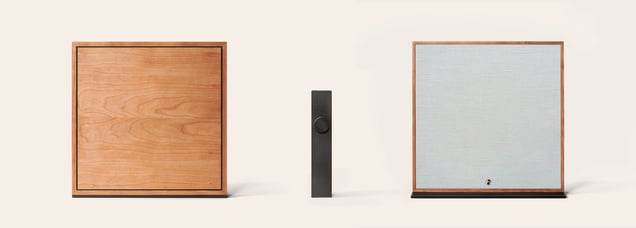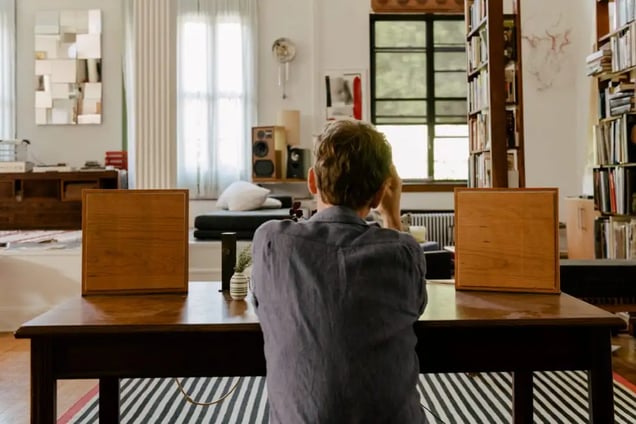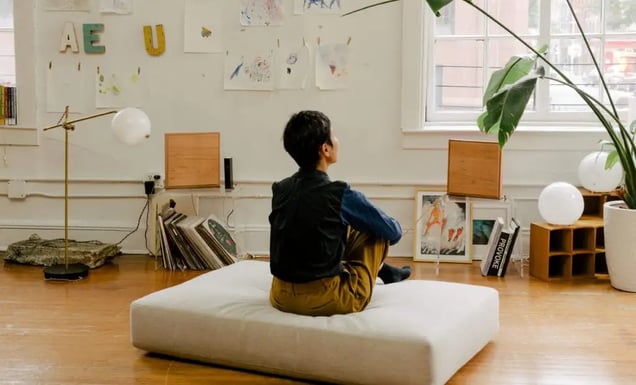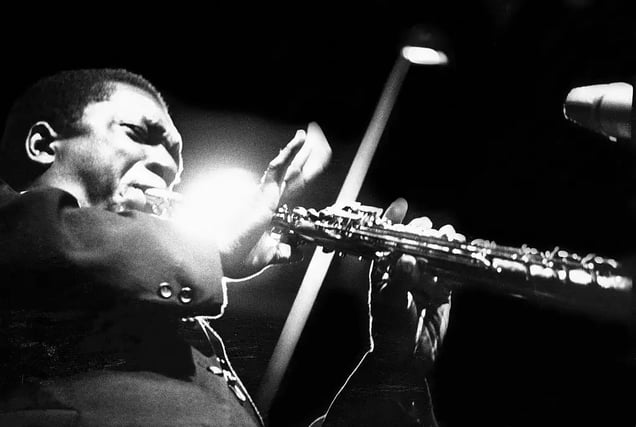Along with most social events, live music has taken a hit during quarantine.

Enter Oda, a startup that makes speakers specifically to bring live performances to your home. Here’s how it works:
- Buy a pair of highly-engineered wood-panel speakers ($299; ships by 2021)
- Pay a membership for a season (3 months) of one-off live music performances exclusive to the speakers ($79)

We spoke with the Oda’s founder, Nick Dangerfield, to find out more about the business and his plans to create a sustainable economy for performing artists and musicians.
***
What inspired you to create Oda?
The story starts in 2016. Artist Phil Elverum (The Microphones, Mount Erie) announced that he would stop touring for personal reasons.
I was a fan of Phil’s work and offered to build him 50 speakers that would be directly connected to an app on his smartphone. Whenever he had time, Phil could do a live performance into the homes of those speaker owners.
I’ve always built weird stuff, but realized that this could be a real product.
How do Oda’s speakers mimic the live experience?
I worked with Perry Branston — an expert in audio equipment (and kind of a crazy man) — to create a sound that provides the strong feeling of presence, as if the musician is in your room.
In essence it’s just a piece of (finely tuned) wood that vibrates and radiates the sound in a similar way as it would happen if the artist was in your room.

Has the pandemic changed your vision for Oda?
We never intended to be a substitute for live music. We wanted to create a medium for more live music.
The pandemic has created a live music void, that has laid bare how unfairly we’re treating artists. In addition, it has added urgency to our wish to work with older artists, as we have lost to the pandemic a few that we wanted to work with.
A lot of older artists — elder artists who are fucking amazing, who are great company and great storytellers — don’t have the digital dexterity to perform on an Instagram Live.
They can’t perform or make money.
For many, they may never perform physically live again. We are sending sound engineers and equipment to these artists and giving them an opportunity to perform live through Oda. That’s a priority for us.
Why don’t you just make the $79 season membership open to any speaker? Wouldn’t that allow these artists to perform for a bigger audience?
We want to be able to control and deliver a very specific experience. We do not believe that the phone or the laptop is the right place to encounter our artists’ performances. We want to create a space, a separate space, for music.
Also, it’s not easy to get people to pay for live music online – we have to make sure that we deliver something great.
If people were just listening to these live performances on their laptops or earphones, they may think the membership price doesn’t make sense. With our custom Oda speakers, we know we can guarantee the sound and experience.
The artist knows exactly what you’re listening to, which gives them a level of control over the sound similar to that in an intimate venue.
So, control of the experience is a top priority?
Look, there are speakers out there much better than ours, like top-of-the-line speakers costing thousands of dollars. But we can’t control the exact experience on that equipment, either.
Our speakers are always connected to the artists. When the microphone of the artist is on, so are our speakers. It’s a direct, immediate line of connection.
When you own the Oda speakers, you will be very intentional about how to use them. Where you’ll place them. The physical act of putting the speakers somewhere special or ideal for the experience will create value on its own that listening to earphones can’t.

This actually sounds a lot like how Peloton bundled its bike with the tablet from the start to control the full experience.
Exactly, I really admire Peloton’s CEO. I recall him speaking about how he needed to get the experience just right before opening up the app to third-party bikes.
For us, we have to get the performance, cadence and production right before we’d be comfortable launching a general app that can work on any speaker.
If we started with an app only (charging $79 a season), we’d be out of business in a month.
What plays on the speakers when there aren’t live performances?
We have a selection of live nature sounds and audio from the outdoors. The sound comes from microphones outside our office in New York and also of microphones we’ve placed in forested areas.
Moving forward, we’ll add live sounds from more locations.
Will Oda expand beyond live music?
Yes, we plan on inviting artists of all types — such as sound artists and writers — to use the medium.
What does this business look like in 5 years?
For us to be a success, we don’t need to just focus on adding millions of members. We need a good, engaged base. We need to have created a positive platform for artists, providing a sustainable economic model for them. The business starts to thrive with the equivalent of a Madison Square Garden audience, about 15k.
Alexis [Ohanian, Reddit co-founder and investor] understands it. He connected with the idea and believes in the value of creating a new live music platform. He’s an absolutely amazing character.
What’s the best live music performance you’ve ever seen?
I’m Spanish and Flamenco is really close to my heart. I remember 2 or 3 nights back in Barcelona clubs for live Flamenco performances that transported me to another place.
I also saw a Depeche Mode concert as a teenager that has stuck with me.
Who is the live performer from the past you wish could be on Oda?
Oh, there are so many.
But the first one that comes to mind is John Coltrane. That would be amazing!

